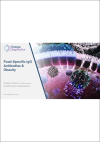Protocols for Intestinal Permeability

As we begin to pick through the evidence that a disturbed gut microbiota contributes to intestinal permeability (IP), or leaky gut, therapeutic protocols for its successful management are beginning to appear.
Before we assign IP to enemy status, it is important to recognise that it is a dynamic two-way process that is fluctuating constantly. It allows fluid from the body to flood back through the epithelial cells and into the gut lumen washing away potentially life-threatening pathogens, including parasites, viruses, and bacteria, contained in the foods and liquids we consume.
But when the epithelial lining is damaged, with relevance to food sensitivity, large and poorly digested food molecules and other substances including pathogens may access the bloodstream from the lumen stimulating the immune system and contributing to a loss of immune tolerance.
Many factors contributing to IP are well recognised, notably poor diet, alcohol consumption and ongoing, unresolved stress. You can access more information from our information sheets located within the resources section of your account page or from our leaky gut blog post.
JOIN US AT OUR NEXT WEBINAR ON INTESTINAL PERMEABILITY
To keep abreast of the research, we are delighted to be offering you a webinar by Dr Brad Leech, on Monday 17th July, who will highlight the latest evidence on testing and management of intestinal permeability.
Register here for Advancements in the Diagnosis and Treatment of Intestinal Permeability webinar.
His focus will be to review the current scientific understanding of increased IP, including the strongest risk factors and associated health conditions and discuss their clinical relevance for IP management.
Dr Leech will explore the assessment and identification of increased IP in clinical practice, including validated testing methods with the highest degree of accuracy. He will also cover the clinical use of food sensitivity testing as a tool for identifying compromised intestinal barrier function.
All practitioners are looking for practical suggestions and protocols and Dr Leech will discuss the results of the Clinical Practice Guideline for the Management of Increased Intestinal Permeability (IP Guideline) developed as part of his PhD, the first guideline designed to support practitioners in managing patients with increased IP. He will go on to discuss dietary and supplement interventions for improving IP, with the latest evidence and clinical observations.
You will leave the presentation with an advanced understanding of the management of increased IP in clinical practice, enabling you to provide the best care to your patients.
About Dr Brad Leech
Dr Brad Leech is a PhD-qualified Clinical Nutritionist specialising in chronic autoimmune conditions and complex gastrointestinal disorders. He provides complete and personalised care to his patients using functional nutrition, integrative medicine and holistic wellness. After entering the profession in 2008, Brad has taught and developed subjects at leading universities and conducted research on intestinal permeability, autoimmune disease management and food-based probiotics. His PhD involved the development of the IP Guideline, the first clinical practice guideline designed to support clinicians in the management of increased intestinal permeability. Brad is the Lead Clinical Educator at Co-Biome, where his expertise in gastrointestinal healthcare enables him to translate the latest science on the gut microbiome into practical clinical applications. In addition to his research and working with patients, Brad offers practitioner support through his mentoring program Brad’s Brainiacs.








